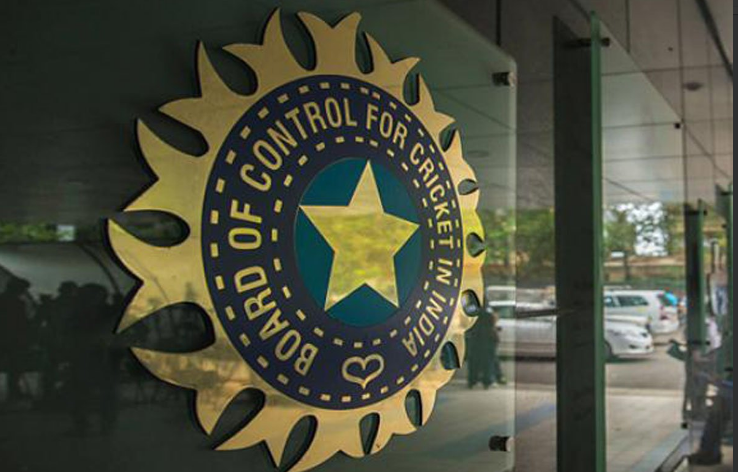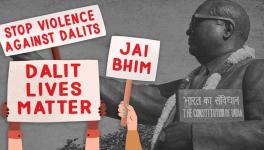Democratic Structure in BCCI Reforms Weakened by SC Order: Justice Lodha

Though Justice (retd.) RM Lodha doesn’t feel things would be taken back to square one by the Supreme Court judgement approving the new BCCI draft constitution, it is evident that some ills from the past would still be entertained (Pic: Twitter).
The reforms prescribed by the Justice (retd.) RM Lodha Committee for the Board of Control for Cricket in India (BCCI) were laid out taking into account many underlying principles and considerations. But those directives -- from providing a framework for a strong administrative and governance culture in Indian cricket, to adding democratic values -- have been diluted with the approval of the new BCCI draft constitution by the Supreme Court, says Justice Lodha, “disappointed” with the judgement made by by a three-member bench comprising of Chief Justice of India (CJI) Dipak Misra and Justices AM Khanwilkar and DY Chandrachud on August 9.
Though Justice Lodha doesn’t feel things would be taken back to square one by the Supreme Court judgement, it is evident that the new constitution would still entertain many ills from yesteryears.
For instance, cricket politicos would be happy with the Supreme Court judgement that an official or administrator can continue for six years in office (two terms) before a mandatory cooling off period of three years (The Lodha Panel had recommended three years before stepping down). That dilution, which will encourage power consolidation by the officials, and the scrapping of the ‘one state, one vote’ recommendation, worries Justice Lodha.
Also Read | England Win. India Lose. Test Cricket Gasps for Air
“[Many] other reforms [in the BCCI] continue,” says Justice Lodha, who retired as CJI is 2014. “BCCI and its state associations’ functioning will not remain as it was earlier. It will definitely change. But the structure has been weakened by these modifications [in the new BCCI constitution]. We gave a solid structure [in the reforms] which would have brought in a very strong administrative and governance culture in the BCCI. That surely has been affected.”
“Two changes are really very bad,” says Justice Lodha. “The most important aspect of the ‘one state, one vote’ reform was that there would be balance in voting power in the BCCI. We recommended that whether the state is big or small, all must have only one vote. Where there are multiple members, they will have rotating membership. That’s what the Supreme Court also said in the July 18, 2016 order.”
In 2016, a Supreme Court bench comprising of then CJI TS Thakur and Justice Ibrahim Kalifulla had accepted the majority of the Lodha Committee recommendations covering various aspects of cricket administration (state and national level). In the revised verdict on August 9, the Court has restored the full membership and voting rights of the cricket associations in Gujarat and Maharashtra -- Mumbai, Baroda, Saurashtra and Vidarbha. The Supreme Court also granted full permanent membership to the Railways, Services, and Association of Indian Universities (AIU).
Also Read | Gautam Gambhir, Virender Sehwag in DDCA’s New Conflict of Interest Controversy
“By restoring the full memberships, Maharashtra and Gujarat will have six votes,” explains Justice Lodha. “For elections of the BCCI Apex Council, for everything in fact, they will have a very dominant role which we wanted to eliminate. This is something which is going to affect the balance of voting power badly. This was going on for decades and we wanted to ensure there is balance, but again it’s disturbed.”
While pronouncing the judgment on August 9, CJI Dipak Misra spoke about the historical contribution the cricketing units from Maharashtra and Gujarat has made to the development of the sport in the country.
“Of course, the Supreme Court judgement has taken into account the historical contribution of these units,” says Justice Lodha. “All that is alright, everyone makes contributions, but when you are applying democratic principles, there should be equality in voting power. We wanted to make that and it was accepted by the Supreme Court. Now, it has not been altered.”
Also Read | Former Coach Reveals Unprofessional Side of Indian Women’s Cricket Team
Besides the voting imbalance, the ‘one state, many votes’ privilege that Maharashtra and Gujarat enjoy makes the West Zone a very strong player in BCCI decisions, which also has a bearing on the game at every level it is played -- from the grassroots to the international arena. It doesn’t take rocket science to figure out that players from a powerful zone enjoy bigger and better opportunities, and have a larger voice in selection matters. That kills the idea of uniform distribution of resources for development of the game across the country.
Government Interference
Justice Lodha feels voting rights for Railways, Services and the Universities body would bring forth government interference in a direct way as well. “We never disturbed their playing rights or associate membership [or Railways, Services and the AIU],” he adds.
“But if we permit them as members with voting rights, the government will directly enter the arena,” says Justice Lodha. “For Universities, the Ministry of Human Resource Development will vote or decide, Railways it would be the Ministry of Railways, and for Services the Ministry of Defence would take the calls. So, in a tightly contested election, those three votes would be decisive, and you know the political things, maneuvering etc. that happens all the time. We wanted to avoid all these things which have been happening for years. So every reform we suggested had an underlying policy and principle. But these have been modified. I am disappointed.”
Future Sense
Now that things are muddled again, all we could do is wait and watch and see how they unfurl in the coming months. The Supreme Court has set a timeline for state units to implement the constitution before holding their elections, followed by one to elect BCCI office bearers. Justice Lodha is as helpless as the common Indian cricket fan now and is hopeful things would pan out well despite the handicaps in the constitution. He is keen for democracy to prevail and for that elections should be held as soon as possible.
Also Read | How the Cricketing World Failed Afghanistan
“The Supreme Court has passed the order and it should be implemented at the earliest, and a democratically elected body should be put in place without any waste of time,” says Justice Lodha. “So that at least they are accountable and responsible as per the constitution. The ad-hoc arrangement of administrators would affect not just the institution but the game itself.”
The game should be the priority but the cash-rich BCCI, and all the political undercurrents that form part of it, is not exactly just about cricket. And, the way things are heading, the status quo looks set to remain the same.
Get the latest reports & analysis with people's perspective on Protests, movements & deep analytical videos, discussions of the current affairs in your Telegram app. Subscribe to NewsClick's Telegram channel & get Real-Time updates on stories, as they get published on our website.
























